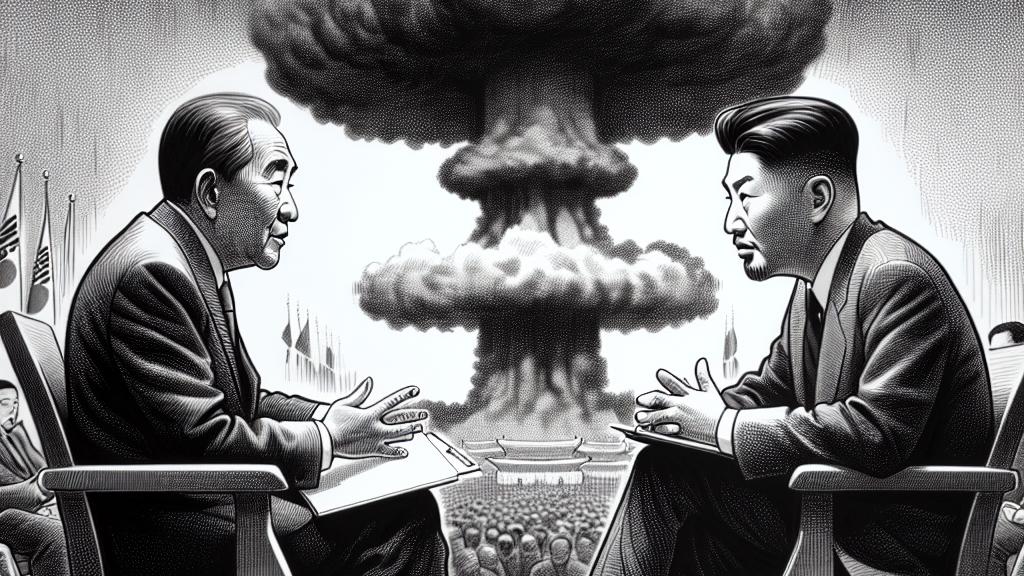Understanding Japan and South Korea Talks Before Trump Becomes President
Overview
- Japan and South Korea are forging stronger ties amidst rising tensions in the region.
- Shared concerns about North Korea's aggressions catalyze cooperation with the United States.
- Political instability in South Korea could impact regional security dynamics.

Strengthening Alliances
Recently, the foreign ministers of Japan and South Korea, Takeshi Iwaya and Cho Tae-yul, met in Seoul—a significant event that illustrates a renewed commitment to healing and strengthening their relationship just before Donald Trump assumes the presidency. This gathering, the first in over six years, reflects how both nations are eager to rewrite their narrative amid geopolitical challenges. With North Korea's escalating threat level, including its aggressive stance on nuclear development, the urgency to create a united front cannot be overstated. Imagine the shared determination of Iwaya and Cho as they realize that collaboration is crucial; it can spell the difference between stability and chaos in their backyard.
Shared Concerns Over North Korea
The core of their discussions revolved around the mounting threats posed by North Korea. Both ministers did not shy away from addressing security concerns, particularly as North Korea recently showcased its missile capabilities with tests that raised eyebrows globally. For example, when North Korea fired a hypersonic missile, it was not just a show of strength; it sent shockwaves through East Asia, compelling both Japan and South Korea to rethink their security strategies. As they navigate this complex landscape, they're not merely sharing information; they're forming a powerful alliance aimed at deterrence. The gravity of this partnership highlights how vital it is for these nations to work together proactively, ensuring their people can feel safe and secure despite the looming threats.
Political Stability in Focus
However, as they forge ahead, the backdrop of political instability in South Korea cannot be ignored. President Yoon Suk Yeol is embroiled in serious impeachment proceedings, casting a shadow over the nation's political landscape. This turbulence raises critical questions: What if Yoon's administration falters? How would that impact trilateral actions aimed at confronting regional threats? Leaders in Tokyo are undoubtedly wary, recognizing that a stable South Korean government serves as the backbone of effective cooperation. Therefore, even amid crises, both Japan and the U.S. are advocating for unwavering diplomatic channels. The effects of domestic issues rippling into foreign relations underline the necessity for a strong, cohesive response to ensure regional security doesn’t waver.

Loading...